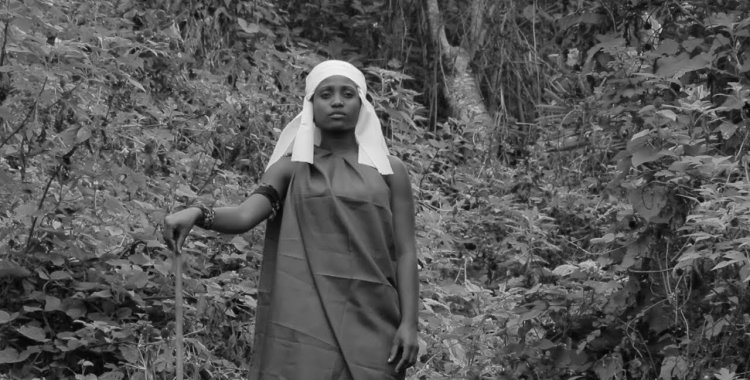According to the Malian historian and writer Amadou Hampaté Bâ (1982), in oral tradition there is a didactic-pedagogical aspect, because of its importance in transmitting the knowledge of a people, considering that it is the great school of life. Therefore, when we look at the Angolan oral tradition, we realize how it was also built on
based on proverbs, tales, songs, riddles, fables, poetry, dances and various narratives, which over the centuries were passed from mouth to mouth, having begun to be fixed by writing in the 20th century by authors such as Óscar Ribas (1952) .
This tradition guarantees the continuation of the habits and customs of ancestry by various peoples that make up the cultural mosaic of Angola. For example, for the Bakongo, the people under analysis, oral tradition is of capital importance for the transmission of the philosophy of life in society, highlighting the beliefs of the spirits of the ancestors who are still alive today.
venerated and this is irrefutable for the Bakongo, as it is an essential premise for the perpetuation of the cultural legacy as a people.
For Bento Dodão (2017, p.14), “the Bakongo, whose language is Kikongo, lived mainly in the northeast of Angola. Today, they are found in the provinces of Cabinda, Uíge, Zaire and some parts of Cuanza Norte and Bengo. This group of individuals who lived and continue to live in a community would not have the character of a community without
the Kikongo language existed”.
Kimpa Vita, in addition to being registered in European documentation, is also present in the Bakongo oral tradition of Angola. Therefore, it is yet another tool that strengthens the presence of oral tradition itself and the importance of retelling the history of the Kongo empire, which today represents present-day Angola, both Congo and Gabon.
It is indisputable to speak of the history of the Kongo “empire” without Kimpa Vita as a protagonist, as it carries with it a memory of resistance and struggle for the Bakongo people, which is why, when we propose to question the absence of its history in the History of the high school in Angola, even though she symbolizes this heroic character in the struggle
against the expansion of Roman Catholicism and the slave trade in Kongo (BATSÎKAMA, 2021), we think of it from the lack of a possible collective memory for the next generations who will not be learning about its history and legacy in schools.
Where is the story of Kimpa Vita in high school textbooks?
In Angolan society, little is said about the protagonism, trajectory, history and memory of Kimpa Vita, mainly with regard to its critical look at Catholicism. And when we consult the main book on “História de Angola” published in Algiers, in July 1965 by the intellectuals of the Center for Angolan Studies of the MPLA government, which probably served as the basis for the production of manuals for teaching history in Angola during the In the first years of independence, we also observe the absence of the history of Kimpa Vita.
It turns out that when we researched and consulted the books (10th class, 11th class and 12th class) of History of secondary education in Angola about the legacy of Kimpa Vita in schools, we realized that its history is not portrayed in any chapter of the books, and this absence quite surprised given its importance in Bakongo orality and in
Angolan historiography ( RIBAS, 1960). How can one understand that in none of the books that serve as a means of transmitting cultural values to the student community in schools, no chapter was reserved to highlight the protagonism of Kimpa Vita, which historically rescued Bakongo spirituality and stopped the transatlantic slave trade during the European colonialism with its Antonist movement? We wonder.
In short, rethinking the place of Kimpa Vita and the Antonist movement in high school textbooks is rescuing the legacy of its memory in Angolan society as a symbol of a fearless woman, who used all the strategies around her to fight against external interference in policy and protect the spirituality of the Bakongo people in the face of
European invasion of the Kongo empire.
Bibliographic references
BÂ, Amadou Hampaté. The living tradition. In: General History of Africa. Vol. I. Are
Paul: Attica; [Paris]: Unesco, 1982, p. 181-218.
BATSÎKAMA, Patricio. Dona Beatriz Ñsîmba Vita. 1.edition. Aracaju, SE: Ancester. 2021.
BENGUI, Peter. HISTORY of the 10th grade. Lda-ANGOLA, 2006.
DODÃO, Bento Miguel Vete. Descriptive analysis of anthroponyms in the Kikongo language. 81p. Dissertation (Master in Terminology and Specialty Information Management). Faculty of Social and Human Sciences. New University of Lisbon. Lisbon, 2017.
FERNANDES, João Pedro and CAPUMBA, Pedro Almeida. HISTORY 12th Class. Lda-ANGOLA, 2006.
LOPES, Júlio Mendes and CAPUMBA, Pedro Almeida. HISTORY 11th class. Lda-ANGOLA, 2006.
RIBAS, Oscar. Echoes of my land. Luanda: Editora Maianga, 1952.








